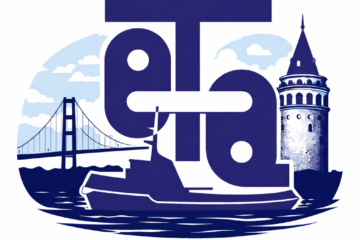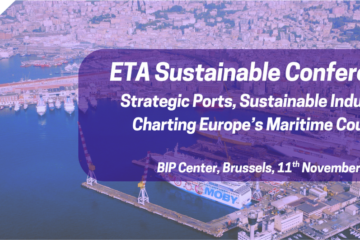The European Commission presented on December 10th its new Sustainable and Smart Mobility Strategy. The document will be the foundation for all the EU transport policy and legislative initiatives in the coming years. The measures outlined in the document will help the sector to achieve the objectives set up in the European Green Deal, a 90% cut in emissions by 2050. Moreover, the strategy also aims at supporting the development of a smarter, fairer, and more competitive and resilient mobility in Europe.
The document includes a series of initiatives that will have a positive impact on the European maritime sector as its commitment to further support the modal shift towards short sea shipping and the development of new motorways of the sea. Concerning the strategy’ s main focus, emissions reduction, the EC is going to review its legislation to make it more coherent and effective and enforce the “polluter pays” and “user pays” principles. In this regard, the EC will review the Ship-Source Pollution Directive, propose the inclusion of maritime emissions in the Emissions Trading System and put an end to fossil-fuel subsidies and tax exemptions. Furthermore, the EC also plans to attract and drive investments to greening the sector with a review of the Alternative Fuels Infrastructure Directive, stronger support to R+D and easier access to sustainable financing.
“This Strategy is a milestone in achieving what has been set out in the Green Deal and should guide the sector´s post-pandemic recovery. We welcome this comprehensive strategy and we believe its measures would increase legal coherence and long-term certainty. These two aspects are essential for our sector if it wants to remain competitive and continue investing in greener and smarter technologies” says Anna Maria Darmanin, ETA Secretary General.
Concerning the upcoming Fuel EU Maritime initiative, ETA stresses the need to respect technology neutrality in order not to tie the greening efforts to any specific option. In this respect, ETA believes that the proposed Renewable and Low-Carbon Fuels Value Chain Alliance could help researchers identify opportunities and strengthen the innovative waterborne sector ecosystem.
Ms Darmanin also underlines the importance of a fair and competitive maritime transport cluster:
“The EU shipping industry has proved its strategic relevance during this crisis, promoting its competitiveness is essential to strengthen Europe´s autonomy and resilience. We agree with the European Commission´s aim and measures to complete the internal market for shipping as, it would make the EU waterborne sector stronger and better integrated. But we must stress that this initiative should ensure a level playing field for all the players and address the imbalances created by the Consortia Block Exemption Regulation”.
You can find the Strategy´s Action Plan with the proposed legislative and policy actions here.



0 Comments